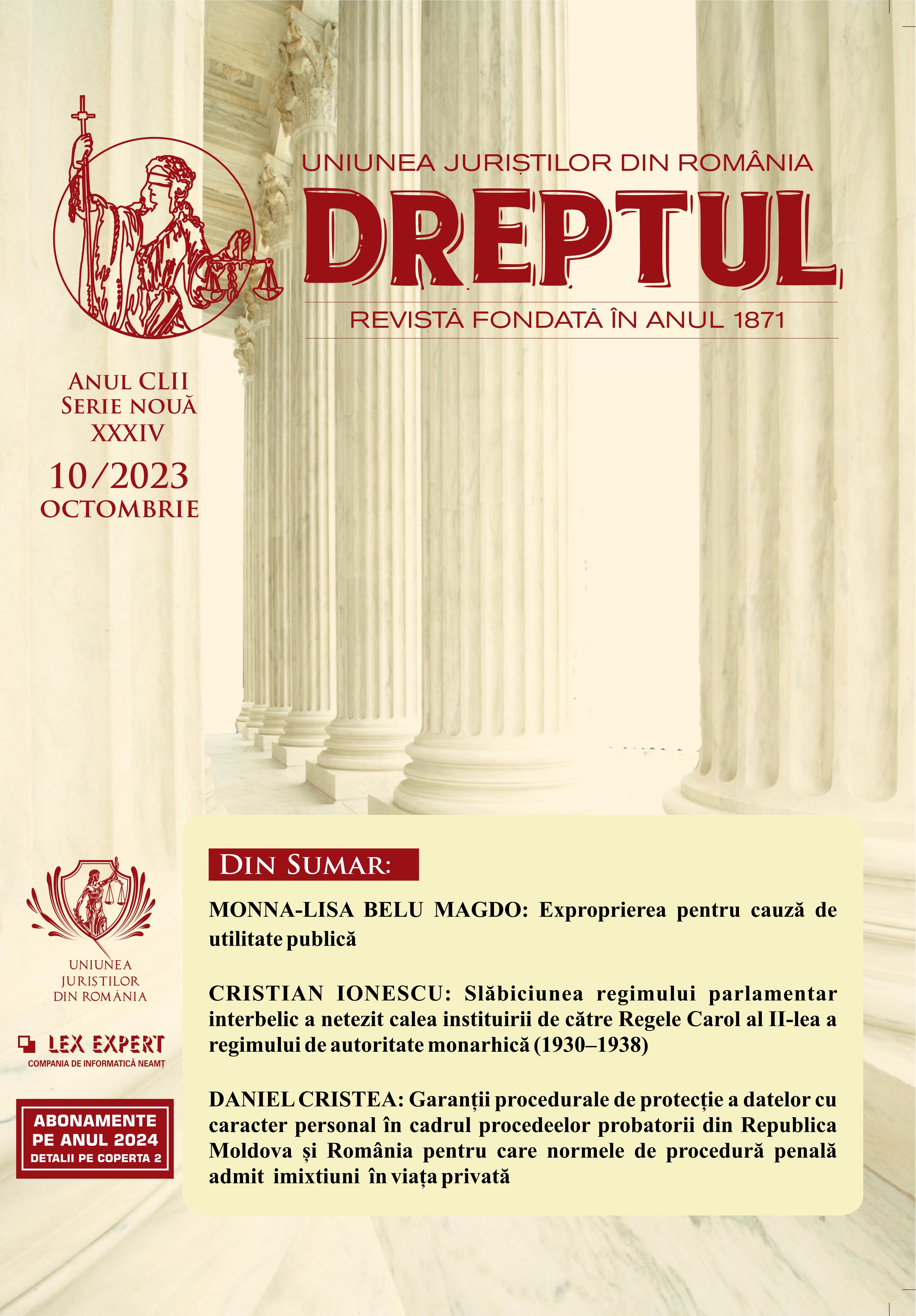Slăbiciunea regimului parlamentar interbelic a netezit calea instituirii de către Regele Carol al II-lea a regimului de autoritate monarhică (1930–1938)
The weakness of the interwar parliamentary regime paved the way for the establishment by King Charles II of the regime of monarchical authority (1930–1938)
Author(s): Cristian IonescuSubject(s): Constitutional Law
Published by: Uniunea Juriștilor din România
Keywords: parliamentary regime; crisis of interwar parliamentarism; Romanian constitutional regimes; constitutionalism; King Charles II; regime of monarchical authority;
Summary/Abstract: In this article, the 6author shows that in the ’30s of the 20th century, the Romanian democratic institutions modelled after the liberal Constitution of 1923 entered a slow process of wear and tear, due, first of all, to the inability of the political parties to find solutions to serious economic, social and national problems faced by each party called to govern. The electoral system based on the electoral primacy was the main virus that generated the instability of liberal democracy in the interwar period. The degradation of the party life and the gradual loss of the electorate’s trust in the democratic political formations revealed their inadaptability to the principles and the substance of Western constitutionalism. Against this background, the far-right political formations have gradually managed to capture enough electoral interest in order to offer an ideological and political alternative to the democratic parliamentary regime, a danger noticed in time by the liberal governments in power, which resorted to measures to counteract the extremist movements.The author notes, at the same time, that, at the level of the European continent, the parliamentary regime entered, after the First World War, into an acute identity crisis, in the conditions where in Europe only France, England and Switzerland had remained faithful to parliamentary democracy and, for a while, Czechoslovakia and Romania. The article shows that King Charles II, as a constitutional factor of balance between powers, failed in his attempt to depoliticize the parliamentary life and resorted to an authoritarian, active monarchy regime as a solution to preserve social peace and to regenerate the internal political life, threatened by the violence of the legionary movement and by the politics of the revisionist European states.
Journal: Revista „Dreptul”
- Issue Year: 2023
- Issue No: 10
- Page Range: 70-103
- Page Count: 34
- Language: Romanian
- Content File-PDF

